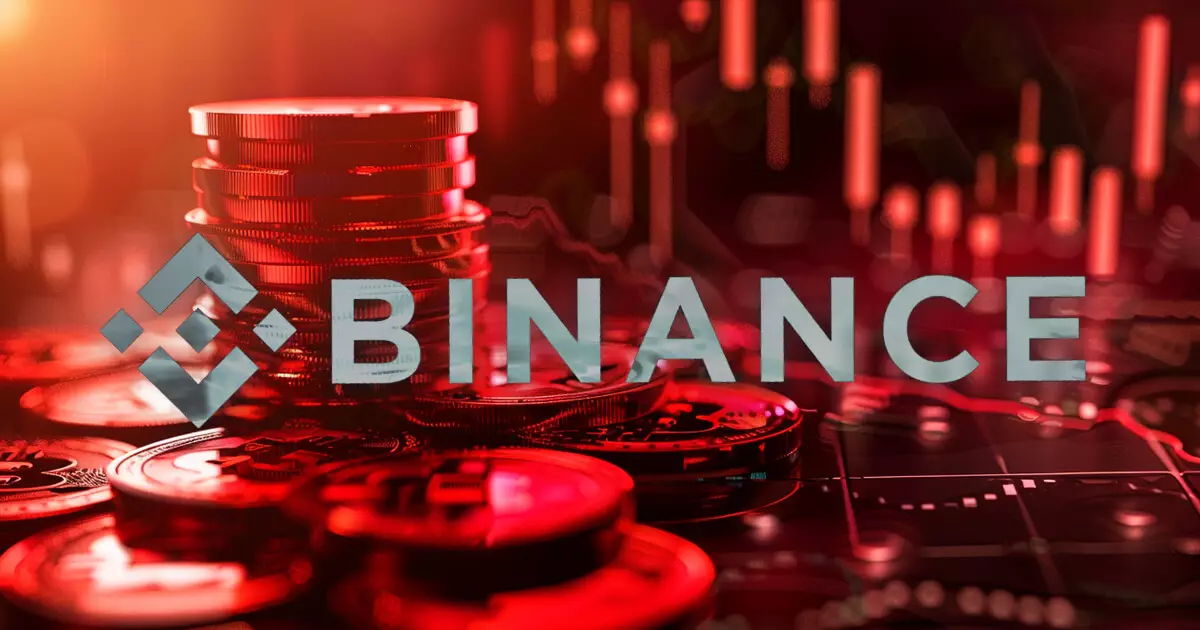The cryptocurrency landscape is increasingly becoming a mix of innovation, speculation, and controversy. A recent focus of concern is the practice surrounding memecoins listed on the Binance exchange, specifically the tokens known as The AI Prophecy (ACT) and Peanut the Squirrel (PNUT). These low-market-cap currencies saw their values surge markedly following surprise listings on Binance, leading to allegations that such actions may be part of a wider strategy enabling “pump-and-dump” schemes. As the world’s largest cryptocurrency exchange, Binance’s approach not only affects individual investors but has significant implications for the entire market.
The excitement surrounding memecoins is nothing new. Memecoins often capitalize on viral trends, allowing both investors and developers to ride the wave of internet popular culture. However, when Binance listed ACT and PNUT, the reactions were mixed. ACT experienced an astronomical rise exceeding 1,000% in value, achieving a market capitalization exceeding $400 million. Meanwhile, PNUT saw a 100% increase, reflecting a troubling trend where low-market-cap tokens can gain significant attention and investment in a short period. This sudden surge raises alarm bells about the authenticity and sustainability of these price movements.
Prominent voices within the crypto community have started expressing their concerns regarding Binance’s listing strategy. Leonidas, co-founder of Ord.io, spearheaded efforts to question Binance’s intentions, asserting that such listings favor a select group of insiders while endangering ordinary retail investors. The argument hinges on the observation that Binance seems to be targeting illiquid memecoins that are controlled by a handful of stakeholders. This strategy may facilitate quick exits (or “dumps”) for these insiders, allowing them to capitalize on the increased value driven by Binance’s status as a leading exchange.
Petitions for Reform
In response to his concerns, Leonidas initiated a petition calling for greater transparency from Binance regarding its listing fees and processes. According to him, it’s imperative for the exchange to disclose where these fees come from, whether they’re paid in tokens, and if there are any planned token sales. This level of scrutiny is crucial to safeguard retail investors who may not fully grasp the intricacies involved in the listing process, especially in cases where only minimal market activity had preceded the token listings.
The Potential Shift in Listing Standards
Adding another layer of complexity, Loopify, a noted industry figure, has speculated that Binance may be deliberately loosening its listing criteria. Traditionally known for its stringent requirements, the exchange appears to be adapting its approach in response to emerging trends that signal movement towards decentralized exchanges. This shift raises questions about why Binance has begun listing a greater number of memecoins and whether these loosening standards might ultimately undermine market integrity.
Market Data Insights
Recent data from blockchain analysts reveals that a considerable percentage of memecoins listed by Binance in 2024 have enjoyed significant price boosts after their initial listings. A staggering 80% of these tokens saw value increases, with a notable majority being built on the Solana network. This data highlights a pivotal trend: the criteria grounded in community support and popularity may be overshadowing objective minimum market value requirements, leading to a surge of speculative trading.
As the cryptocurrency market continues to evolve, the case of these Solana-based memecoins underscores urgent calls for transparency and reform in how exchanges like Binance manage their listings. Retail investors, in their quest for profit within an exhilarating yet ephemeral market, deserve more clarity about the forces at play. Without accountability in the listing process, the risk of exploitative trading behaviors rises, creating an atmosphere where regular investors may find themselves at a disadvantage. The ongoing discourse regarding Binance’s practices will undoubtedly prompt deeper examinations of ethical trading within the cryptocurrency landscape, as community leaders demand a more just system for all participants.














